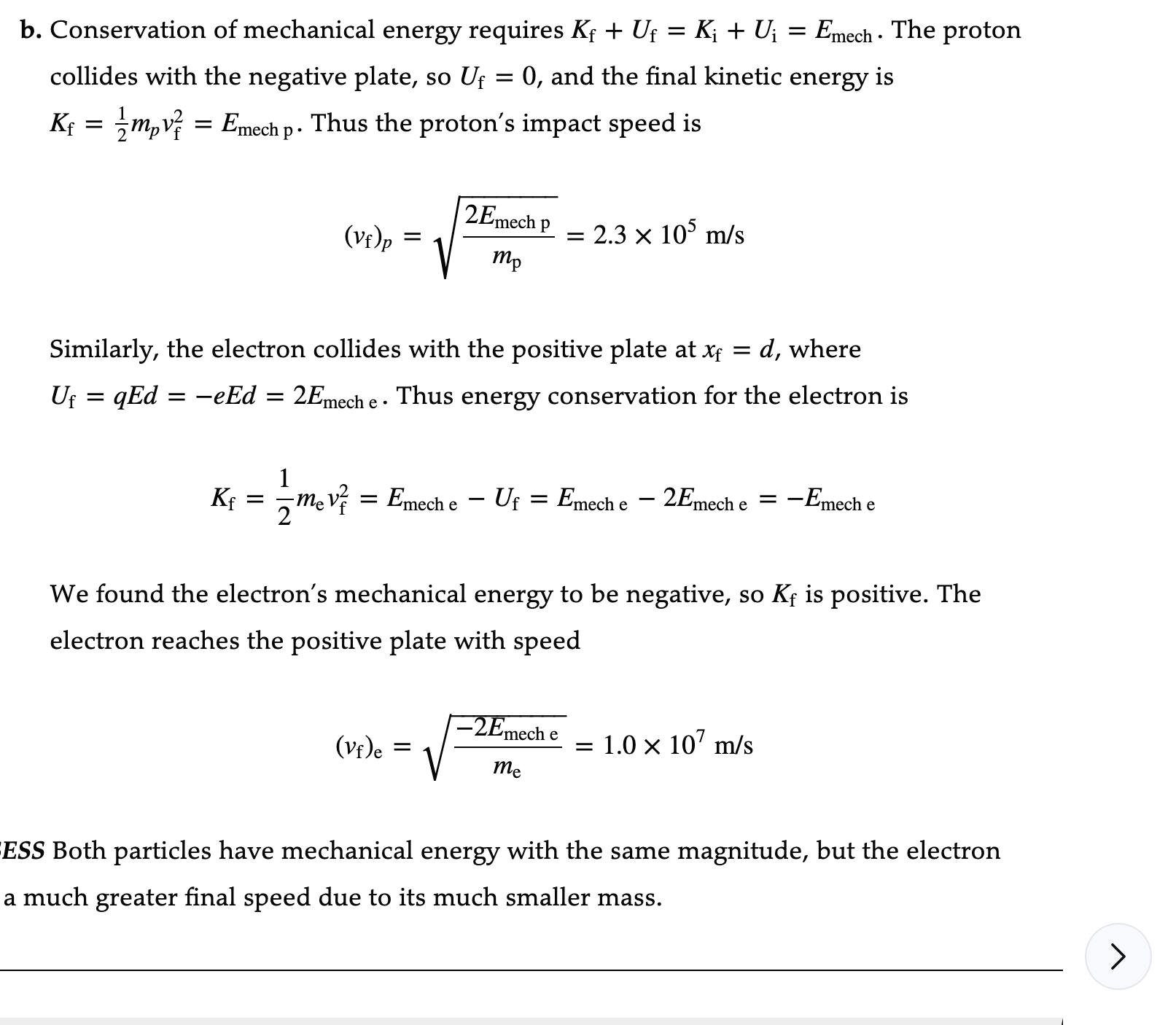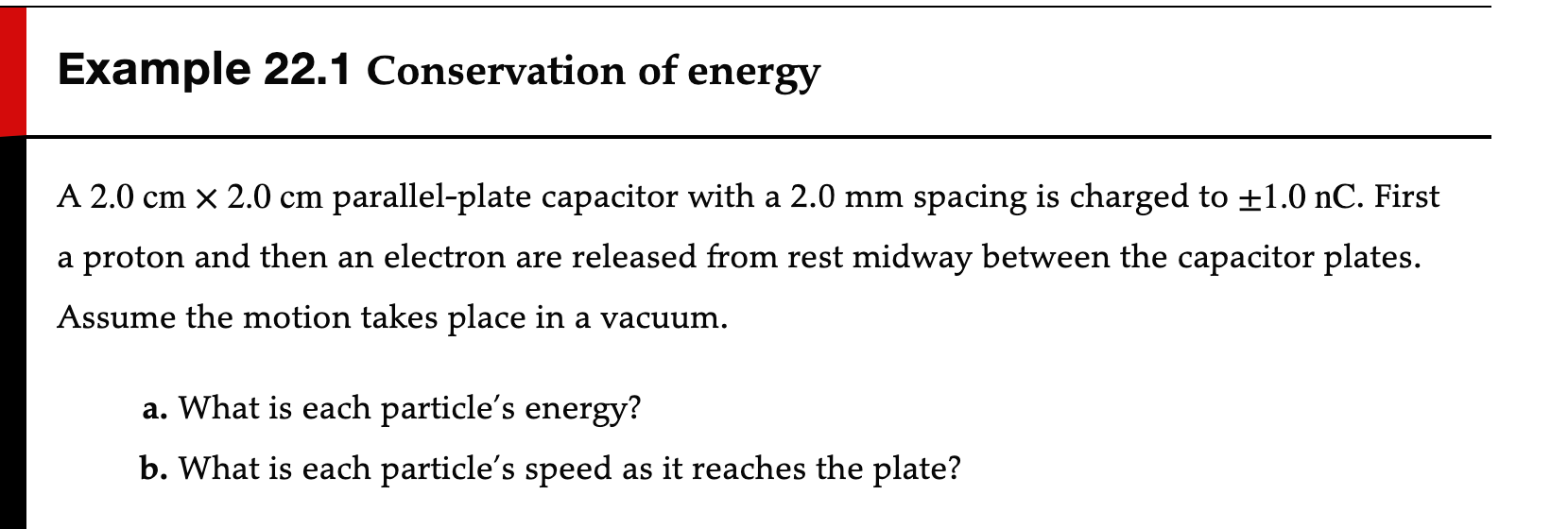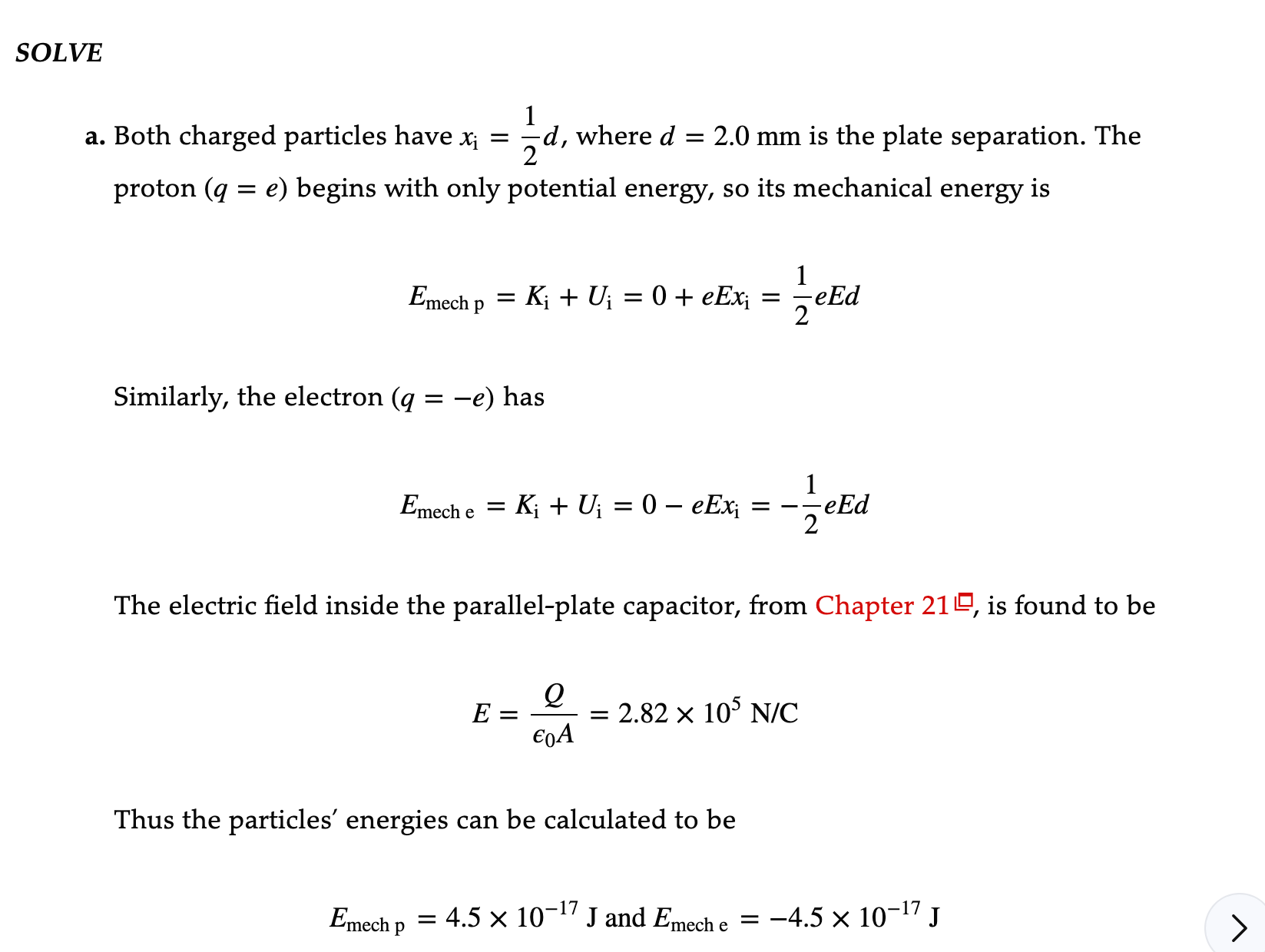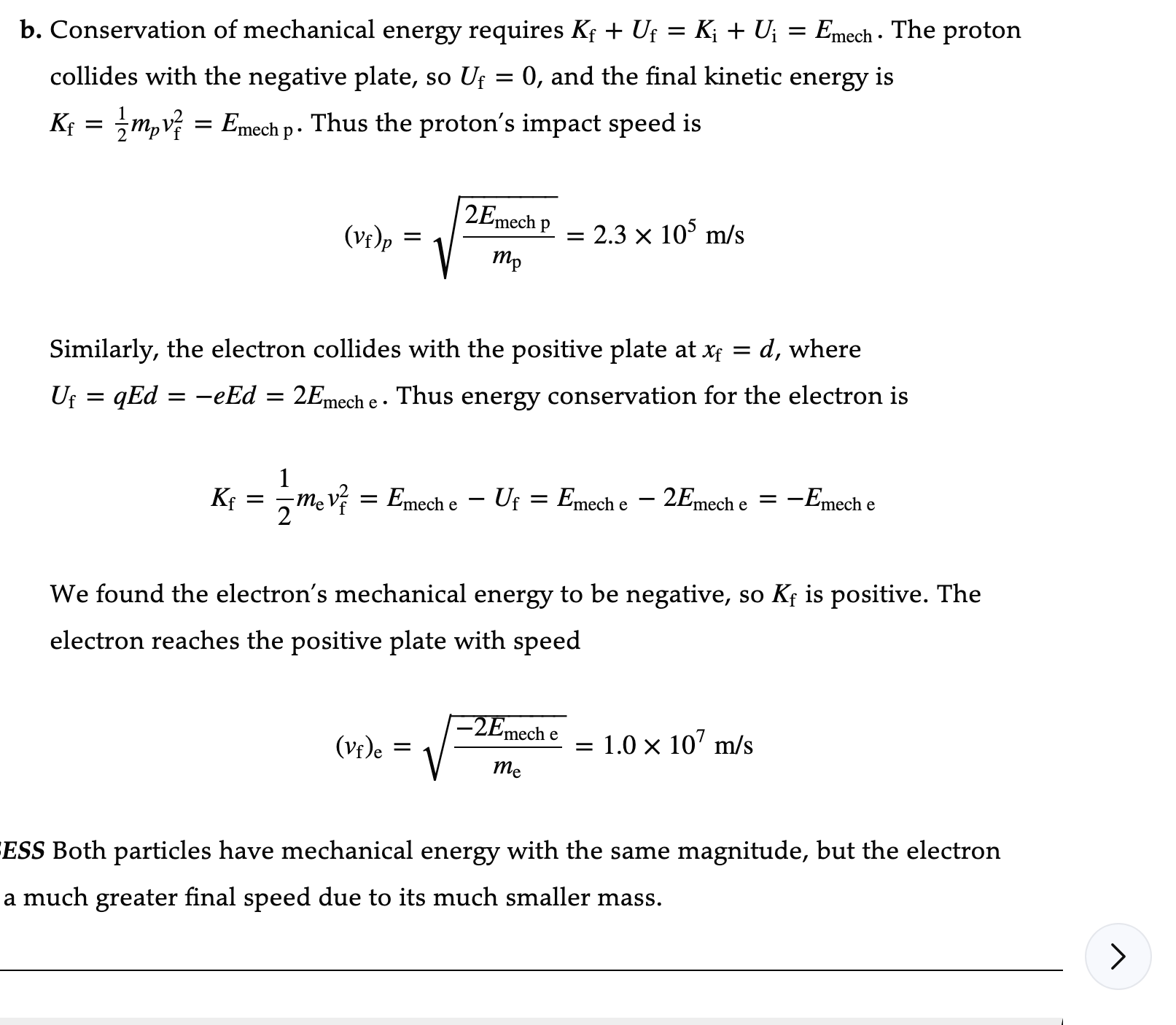Answered step by step
Verified Expert Solution
Question
1 Approved Answer
Can you please explain how the calculations were done Example 22.1 Conservation of energy A 2.0 cm x 2.0 cm parallel-plate capacitor with a 2.0

Can you please explain how the calculations were done



Step by Step Solution
There are 3 Steps involved in it
Step: 1

Get Instant Access to Expert-Tailored Solutions
See step-by-step solutions with expert insights and AI powered tools for academic success
Step: 2

Step: 3

Ace Your Homework with AI
Get the answers you need in no time with our AI-driven, step-by-step assistance
Get Started


